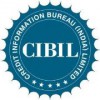Filter interviews by
Credit Systems India Java Developer Interview Questions and Answers
Credit Systems India Java Developer Interview Experiences
1 interview found
I applied via LinkedIn
Reverse string, duplicate char, query, swap numbers etc
Collections,microservices
Interview Preparation Tips
Java Developer Jobs at Credit Systems India
Top trending discussions






Interview questions from similar companies

I was interviewed in Dec 2024.
(22 Questions)
- Q1. API Gateway implementation
- Q2. Circuit breaker implementation
- Q3. What is deadlock? How to avoid it?
- Q4. Explain equals() method
- Q5. How mongodb was integrated in your application?
- Q6. What is hibernate?
- Q7. Runnable vs Callable interface
- Q8. Which type of data is returned by Callable interface?
- Q9. HashMap internal working
- Q10. Concurrent HashMap internal working
- Q11. How to monitor health of your application?
- Q12. How to call an API in a Microservice architecture?
- Q13. Explain Profiles
- Q14. What is OpenFeign, and how is it used in microservices architecture?
- Q15. What is the implementation process for service registry and discovery?
- Q16. What are Spring boot actuators?
- Q17. Synchronous vs Asynchronous communication
- Q18. Explain Synchronized keyword
- Q19. What are the consequences of excessively using synchronized blocks and methods in Java?
- Q20. How can you determine the number of threads needed for your application?
- Q21. Explain Executor framework
- Q22. Explain BlockingQueue
(2 Questions)
- Q1. Why did you leave your previous company?
- Q2. Other basic questions asked regarding the relevant skills and technologies I have worked with.

I applied via Approached by Company and was interviewed in Dec 2024. There was 1 interview round.
(8 Questions)
- Q1. What improvements to interfaces were introduced in Java 8 that were missing in Java 7, specifically regarding static and default methods?
- Q2. Explain internal working of HashMap ? How to synchronize it ?
- Q3. Given a list of employees with their ratings, how can you sort the employees based on their ratings using the Java 8 Streaming API?
- Q4. Will the program compile if the parent class throws a runtime exception while the child class throws an arithmetic exception?
- Q5. In a Spring Boot application with two databases, how can you configure JDBC to specify which database to use?
- Q6. How to use a jetty server in your spring boot application ?
- Q7. Difference between @RequestParam and @PathVariable ?
- Q8. How would you handle a scenario where one microservice is awaiting a response from another microservice that is taking an extended time to respond?
Interview Preparation Tips

I applied via Company Website and was interviewed in Nov 2024. There were 2 interview rounds.
(7 Questions)
- Q1. Create one Spring boot controller from end to end. No need to create a spring boot project we just want to see the structure and end to end implementation.
- Q2. Write a java 8 program to get the characters from a string whose count is 2 or more than 2 e.g. input: baseball , output: b, a, l.
- Q3. Why you left your previous organization.
- Q4. What is the functional interface
- Q5. What are the OOPS concepts. and some questions related to inheritance.
- Q6. Asked about the project mentioned in CV (Client project) and asked its architecture.
- Q7. Various SQL join types
(3 Questions)
- Q1. Are you ready to relocate to job location
- Q2. Why are you leaving your previous organization.
- Q3. Expectation about salary
Interview Preparation Tips

I applied via Naukri.com and was interviewed in Dec 2024. There was 1 interview round.
(6 Questions)
- Q1. Java 8 , java 11 and java 17 features?
- Ans.
Java 8 introduced lambda expressions, Java 11 added local-variable syntax for lambda parameters, and Java 17 included sealed classes and pattern matching.
Java 8 introduced lambda expressions for functional programming.
Java 11 added local-variable syntax for lambda parameters to simplify code.
Java 17 included sealed classes to restrict inheritance and pattern matching for instanceof checks and type casts.
- Q2. Dispatcher servlet, design patterns
- Q3. @SpringbootApplication annotation, actuators
- Q4. String Coding question with java 8 features such as lambda function and stream api
- Q5. Number of words in a string
- Ans.
Count the number of words in a given string.
Split the string by spaces and count the number of resulting elements.
Handle edge cases like multiple spaces or empty strings.
Consider punctuation marks as part of words unless specified otherwise.
- Q6. Microservice design patterns

I applied via Walk-in and was interviewed in Nov 2024. There were 3 interview rounds.
It's walkin, so they conducted 1 technical mcqs round.
(11 Questions)
- Q1. Multi threading
- Q2. Internal working of hashmap
- Ans.
HashMap in Java is a data structure that stores key-value pairs and uses hashing to efficiently retrieve values based on keys.
HashMap uses an array of buckets to store key-value pairs.
Keys are hashed to determine the index in the array where the key-value pair will be stored.
In case of hash collisions, a linked list or a balanced tree is used to store multiple key-value pairs in the same bucket.
HashMap allows null keys...
- Q3. Spring batch related
- Q4. Non repeating characters in a array
- Ans.
Function to find and return all non-repeating characters in an array of strings.
Iterate through the array and count the occurrences of each character using a HashMap.
Then iterate through the array again and check if the count of each character is 1, if so add it to the result list.
Return the list of non-repeating characters.
- Q5. 3rd highest salary
- Ans.
To find the 3rd highest salary in a database, we can use a SQL query with the 'LIMIT' and 'OFFSET' keywords.
Use a SQL query with 'ORDER BY salary DESC' to sort the salaries in descending order.
Use 'LIMIT 1 OFFSET 2' to skip the first two highest salaries and retrieve the third highest salary.
Example: SELECT salary FROM employees ORDER BY salary DESC LIMIT 1 OFFSET 2;
- Q6. Qualifier vs primary
- Ans.
A qualifier in Java is used to specify additional information about a primary, which is the main data type or variable.
A primary in Java is the main data type or variable, while a qualifier provides additional information about the primary.
Qualifiers can be used to modify the behavior or characteristics of a primary.
For example, in Java, 'final' is a qualifier that can be used to make a variable constant.
- Q7. Controller vs restcontroller
- Ans.
The main difference is that @RestController is a specialized version of @Controller that is used for RESTful web services.
Both @Controller and @RestController are used in Spring MVC to handle HTTP requests, but @RestController is specifically used for RESTful web services.
@Controller is used to create web pages, while @RestController is used to return data in JSON or XML format.
@RestController is a convenience annotati...
- Q8. Spring boot annotataions
- Q9. Oops concepts with examples
- Ans.
OOP concepts include inheritance, encapsulation, polymorphism, and abstraction.
Inheritance: Allows a class to inherit properties and behavior from another class. Example: class Dog extends Animal.
Encapsulation: Bundling data and methods that operate on the data into a single unit. Example: private variables with public getter and setter methods.
Polymorphism: Ability for objects to be treated as instances of their paren...
- Q10. Spring batch configuration
- Q11. They covered all java, spring and Microservices
(4 Questions)
- Q1. Microservices architecture
- Q2. How do Microservices communicate
- Ans.
Microservices communicate with each other through various communication protocols like HTTP, messaging queues, and gRPC.
Microservices can communicate over HTTP using RESTful APIs.
Messaging queues like RabbitMQ or Kafka can be used for asynchronous communication between microservices.
gRPC is a high-performance, open-source RPC framework that can be used for communication between microservices.
Service discovery mechanism...
- Q3. How to access the Microservice end point
- Ans.
Microservice endpoints can be accessed using HTTP requests with the appropriate URL
Use HTTP methods like GET, POST, PUT, DELETE to interact with the microservice
Construct the URL with the base URL of the microservice and the specific endpoint path
Include any necessary headers or parameters in the request for authentication or data filtering
- Q4. Why we use microservices
- Ans.
Microservices allow for modular, scalable, and flexible software development by breaking down applications into smaller, independent services.
Microservices enable easier maintenance and updates as each service can be developed, deployed, and scaled independently.
They improve fault isolation, as failures in one service do not necessarily affect the entire application.
Microservices promote agility and faster time-to-mark...
Skills evaluated in this interview

(2 Questions)
- Q1. Explain architecture of your project
- Q2. Some questions on Java, Spring Boot and sql
(2 Questions)
- Q1. Project flow and some behavioural questions
- Q2. Project contribution of yours
- Ans.
Developed a web application for tracking employee attendance and performance
Implemented user authentication and authorization using Spring Security
Utilized Hibernate for database interaction and data persistence
Designed and developed RESTful APIs for frontend integration
Used AngularJS for frontend development to create interactive user interfaces
(1 Question)
- Q1. Basic formalities before offer release
Interview Preparation Tips

I applied via Naukri.com and was interviewed in Nov 2024. There was 1 interview round.
(3 Questions)
- Q1. Difference between hashmap and hash table
- Ans.
HashMap is non-synchronized and allows null values, while HashTable is synchronized and does not allow null values.
HashMap is non-synchronized, meaning it is not thread-safe, while HashTable is synchronized and thread-safe.
HashMap allows null values for both keys and values, while HashTable does not allow null keys or values.
HashMap is generally preferred for non-thread-safe applications, while HashTable is used in mul
- Q2. Static block related questions
- Q3. Arraylist and linkedlist question
Skills evaluated in this interview

I applied via Naukri.com and was interviewed in Dec 2024. There was 1 interview round.
(2 Questions)
- Q1. What are virtual threads and its uses
- Q2. Differenciate deep cloning vs shallow cloning with a code

I applied via Job Fair and was interviewed in Oct 2024. There were 4 interview rounds.
Onlin test consist pf easy numerical questions
Easy questions not so difficult
(3 Questions)
- Q1. Java oops concept
- Q2. Basic sprophramming questions
- Q3. Networking firewall cisco
(2 Questions)
- Q1. Personal questions
- Q2. Whetehr to willing to work in any locations
- Ans.
Yes, I am willing to work in any location for the right opportunity.
I am open to relocating for the right job opportunity
I am flexible and adaptable to new environments
I believe working in different locations can provide valuable experiences and growth opportunities
Interview Preparation Tips
- Networking
Credit Systems India Interview FAQs
Tell us how to improve this page.
Interview Questions for Popular Designations
- Senior Java Developer Interview Questions
- Junior Java Developer Interview Questions
- Java Software Developer Interview Questions
- Java Developer Trainee Interview Questions
- Java Software Engineer Interview Questions
- Associate Java Developer Interview Questions
- Software Developer Interview Questions
- Java Technical Lead Interview Questions
- Show more
Java Developer Interview Questions from Similar Companies
Credit Systems India Java Developer Reviews and Ratings
based on 26 reviews
Rating in categories
|
Java Developer
221
salaries
| ₹1.8 L/yr - ₹2.4 L/yr |
|
Software Developer
181
salaries
| ₹1.7 L/yr - ₹3 L/yr |
|
Backend Java Developer
29
salaries
| ₹1.8 L/yr - ₹2.2 L/yr |
|
Java Back End Developer
18
salaries
| ₹1.8 L/yr - ₹2.2 L/yr |
|
Software Engineer
15
salaries
| ₹1.8 L/yr - ₹2.2 L/yr |

CIBIL

Experian

Equifax
Credit Information Bureau
- Home >
- Interviews >
- Credit Systems India Interview Questions >
- Credit Systems India Java Developer Interview Questions









